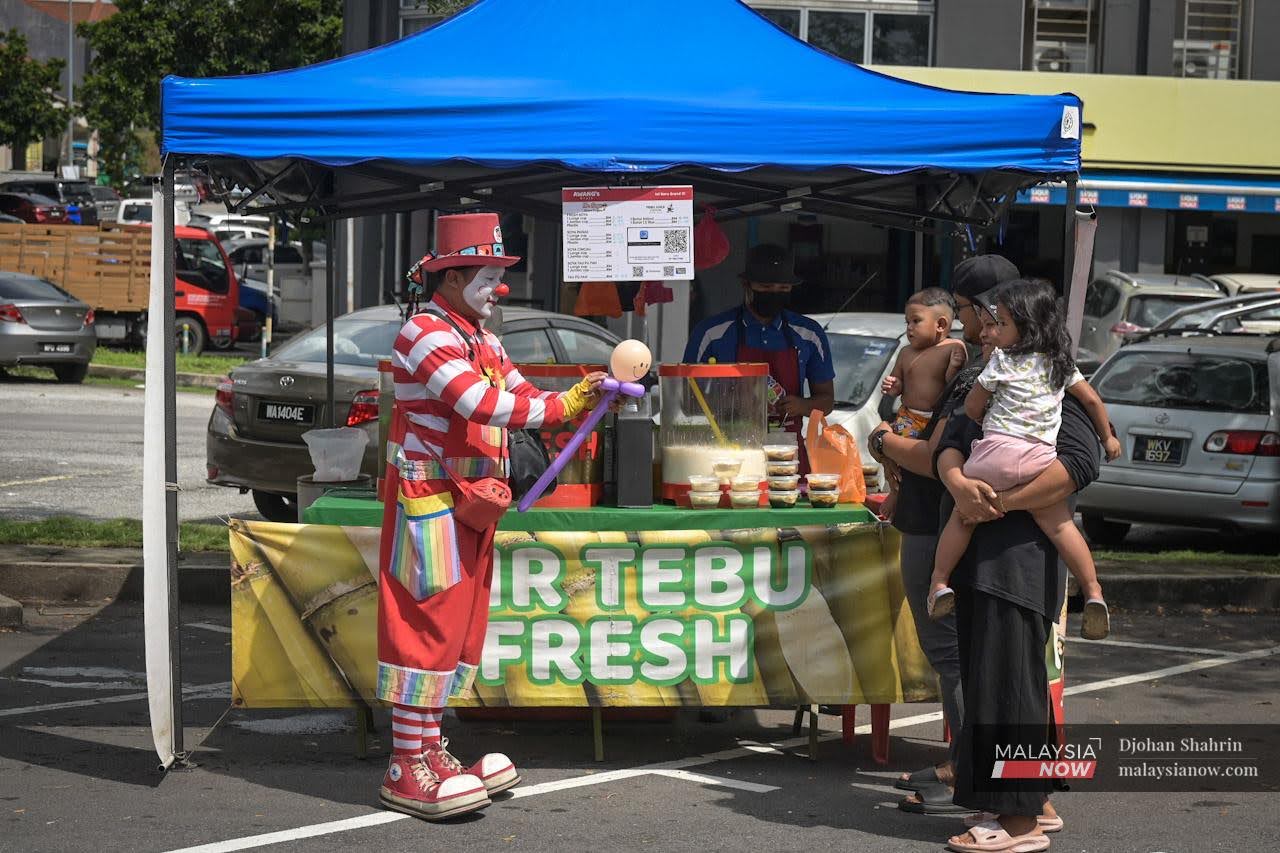Clowns balk at association with figures embroiled in corruption and crime
While they accept being bracketed with jokes and brainlessness, they say it is an insult to the trade to link them with crime.
Just In
While clowns are used to being the butt of jokes, bracketed by profession with foolery, laughter and comic relief, they are drawing the line at other associations unique to Malaysia which arose around the same time as the 1MDB scandal.
Mohd Fadly Abu Hasan, who established his own business called Awang the Clown 12 years ago, said it was an insult to the trade to link it to individuals who have been convicted of corruption, or any crime for that matter.
He said it was painful to see individuals superimposing clowns on the portraits of individuals, including politicians, facing criminal charges in court.
Speaking to MalaysiaNow, he said the act turned clowns into a negative symbol and caused them to be scorned by society.
“If people want to relate clowns with something funny or nonsensical, I can accept it,” he said, “but don’t equate us with individuals who are embroiled in corruption or crime.”
In Malaysia, clowns are often associated with politicians and leaders whose pictures are posted as a sign of criticism on social media.
They are also identified with leaders or individuals holding important positions who air views considered ridiculous.

The practice of relating clowns with such people took off in earnest after graphic artist Fahmi Reza drew former prime minister Najib Razak as a clown and uploaded his work on social media.
The picture spread far and wide following the 1MDB revelations by The Wall Street Journal.
Najib himself was convicted in 2020 of criminal breach of trust, money laundering and abuse of power related to RM42 million in SRC International funds found in his accounts. He was fined RM210 million and sentenced to 12 years in jail, although he is currently appealing his conviction, fine and sentence at the Federal Court.
The association of clowns with other individuals also took off, even for leaders from Pakatan Harapan after the coalition took over Putrajaya in the 14th general election in 2018.
Fadly said only those who were not acquainted with the clowning profession would draw such links.
He also described it as a noble career, saying it was ethical and aimed at brightening people’s lives.
“Don’t compare us with individuals who are embroiled in issues of corruption or crime because we make a clean living,” he said.
“Our success depends on our creativity, which needs a certain skillset.”
Nevertheless, Fadly, who is a member of the Association of Clowns Malaysia, said not many in the line had ever openly expressed their feelings about the matter.
He said associating clowns with “problematic figures” only rubbed salt into the wounds of entertainers who were already looked down on by many.
“People think of us as stupid and nonsensical, and even unethical,” he said.
“Until today, I am still working to change society’s views and the negative portrayal of clowns in the public eye.”
Subscribe to our newsletter
To be updated with all the latest news and analyses daily.
